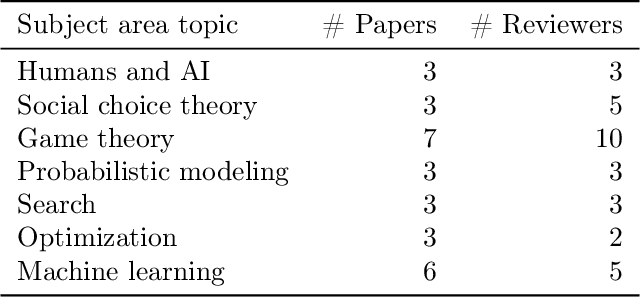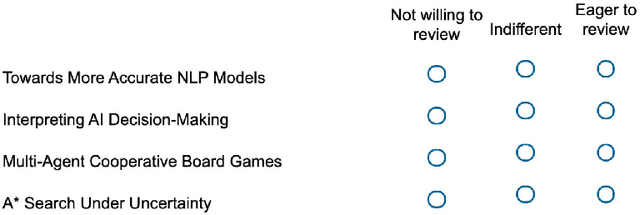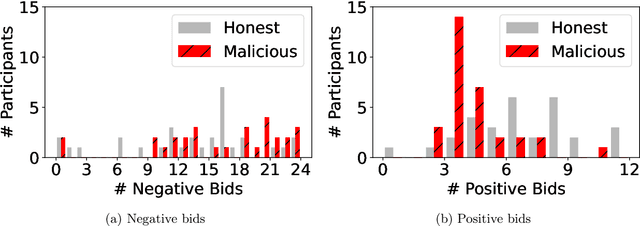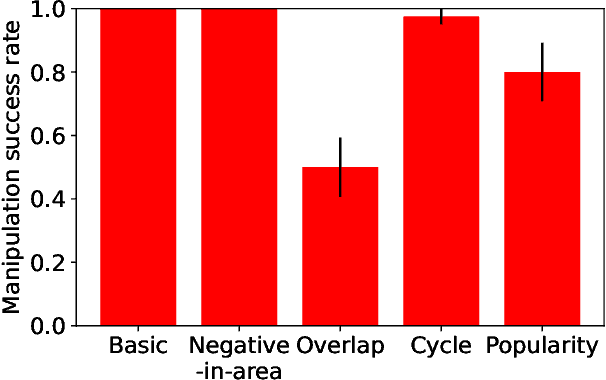A Dataset on Malicious Paper Bidding in Peer Review
Paper and Code
Jun 24, 2022



In conference peer review, reviewers are often asked to provide "bids" on each submitted paper that express their interest in reviewing that paper. A paper assignment algorithm then uses these bids (along with other data) to compute a high-quality assignment of reviewers to papers. However, this process has been exploited by malicious reviewers who strategically bid in order to unethically manipulate the paper assignment, crucially undermining the peer review process. For example, these reviewers may aim to get assigned to a friend's paper as part of a quid-pro-quo deal. A critical impediment towards creating and evaluating methods to mitigate this issue is the lack of any publicly-available data on malicious paper bidding. In this work, we collect and publicly release a novel dataset to fill this gap, collected from a mock conference activity where participants were instructed to bid either honestly or maliciously. We further provide a descriptive analysis of the bidding behavior, including our categorization of different strategies employed by participants. Finally, we evaluate the ability of each strategy to manipulate the assignment, and also evaluate the performance of some simple algorithms meant to detect malicious bidding. The performance of these detection algorithms can be taken as a baseline for future research on detecting malicious bidding.
 Add to Chrome
Add to Chrome Add to Firefox
Add to Firefox Add to Edge
Add to Edge